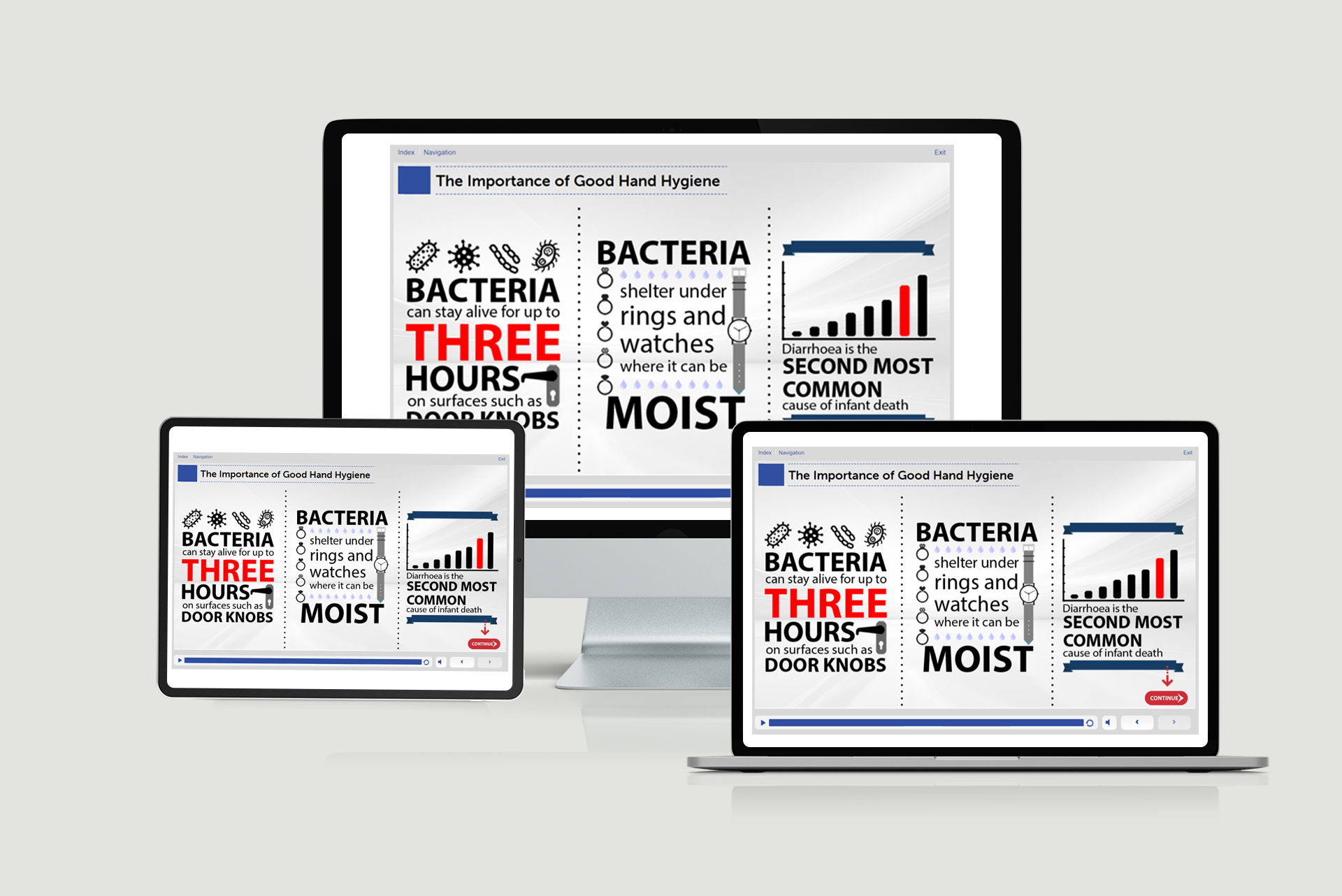
Level 3 Supervising Food Safety
From: £95.00 plus VAT
This course builds on the basic principles of food safety established in the Level 2 course and is ideal of supervisors or those with management responsibilities for others.
The knowledge gained will help the delegate successfully guide and mentor their colleagues in achieving the aims of the food safety management system and deliver safe food to the end customer.
Cost: £95 (Members), £98 (Non-Members), all plus VAT, per delegate
Duration: 6-7 hours
License version (coupons) - Send one or more of these courses - to be completed by others
For help purchasing courses please CLICK HERE
Description
Training course content
This course is made up of the following modules:
An Introduction to Level 3 Food Safety & Hygiene Training Course in Supervising
In this section, we’ll cover what a level 3 food training course involves, the role it plays and who should be responsible.
Module 1 – Introduction to Food Safety & Microbiology
Covers food safety principles and factors responsible for incidents of foodborne illnesses.
Module 2 – Food-safety Hazards & their Control
Covers how to identify the different types of food safety hazards, including the four main groups, which are biological, chemical, physical and allergenic.
Module 3 – Food Poisoning & Food Borne Illnesses
It looks at food poisoning and foodborne illnesses, what factors are responsible for outbreaks, the symptoms and the control measures that can be put in place to minimise the risk of infection.
Module 4 – Personal Hygiene
It looks at good hygiene practices to help ensure that when handling food, food-handlers do not become a source of contamination.
Module 5 – Cleaning & Disinfection
Covers how to carry out effective cleaning and disinfection of equipment and facilities while following the relevant health and safety precautions to ensure the safe use of
chemicals.
Module 6 – Waste Control
It looks at the types of waste in a food environment.
Module 7 – Pests & their Control
It looks at signs of pest infestation, how pests can become food safety hazards and the actions that should be taken where pest infestations exist by using good housekeeping techniques.
Module 8 – Food Premises & Food Equipment
Before commercial food-handling operations can begin, the intended premises must be suitable and approved by the enforcement authority (environmental health).
Module 9 – Food Storage & Temperature Control
Covers the importance of following best hygiene practices and guidelines relating to the safe storage, transportation and temperature control of different types of foods to ensure food remains safe for consumption.
Module 10 – Food Packaging, Labelling & Traceability
Designed to help you to understand how and why we package and label food to keep food safe for the consumer.
Module 11 – Food Preservation
It looks at how yeasts, moulds and bacteria can cause the decomposition and spoilage of foods, which can make food unfit for human consumption.
Module 12 – Food Safety Management
It looks at the seven principles of HACCP (Hazard Analysis Critical Control Point) as a food safety management system and the benefits of implementing it effectively.
Module 13 – Food Hygiene Legislation
Designed to give you a good understanding of the principal food hygiene legislation that applies to the UK and its relationship to European Community law.
Learning Objectives
On completion of the course, delegates should be able to:
- Identify the importance of HACCP-based food safety management systems
- Recognise and identify hazards and risks
- Identify what should be included in pre-requisite programmes and their importance
- Implement effective HACCP principles within a food business/environment
- Describe what is included within a HACCP plan and why it is essential
- Recognise Critical Control Points (CCPs) and how to put corrective action procedures in place
- List the five preliminary steps included in the application of HACCP
- Identify what a PFD (process flow diagram) is and how it can be useful in managing a food business
Assessment
On completion of the course lessons and training material an online assessment will automatically unlock. The assessment will contain 45 multiple-choice questions and a mark of 75% or above will be required to pass. The assessment will be marked instantly so delegates will know straight away if they have passed. If they don’t pass first time there’s no need to worry. Unlimited resits at absolutely no additional charge are available so the assessment can be taken again as many times as required.
Related products
-
Pest Awareness (Polish)
From: £25.00 plus VAT Select options This product has multiple variants. The options may be chosen on the product page -
Hand Hygiene for Food Workers
From: £25.00 plus VAT Select options This product has multiple variants. The options may be chosen on the product page -
E.coli O157:H7 – Understanding
From: £25.00 plus VAT Select options This product has multiple variants. The options may be chosen on the product page -
Introduction to Food Safety
From: £25.00 plus VAT Select options This product has multiple variants. The options may be chosen on the product page




